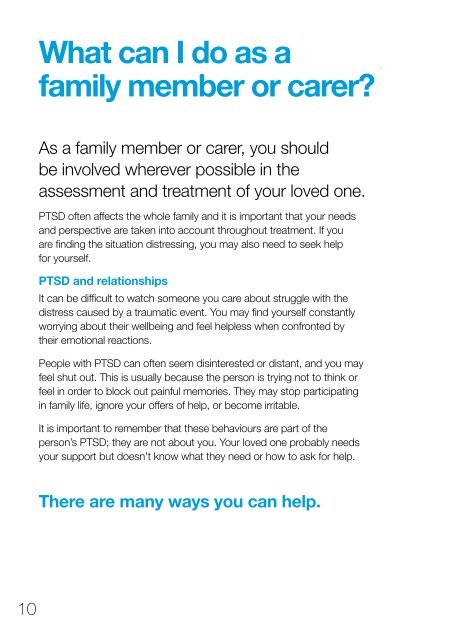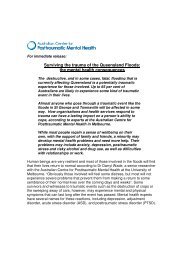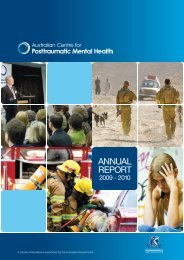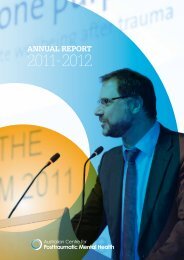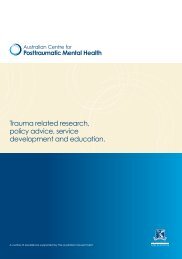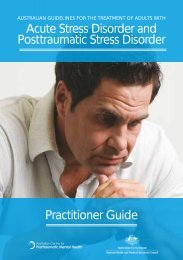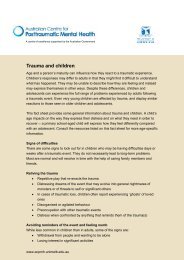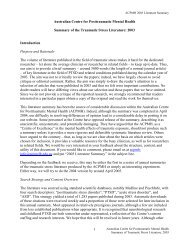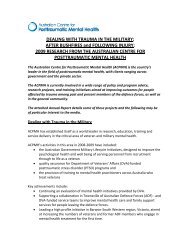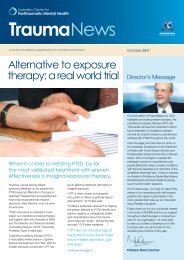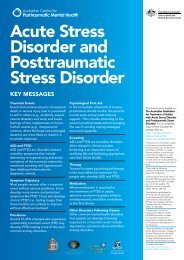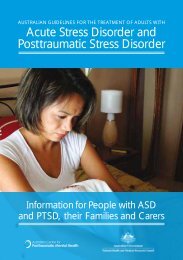Recovery after Trauma - Australian Centre for Posttraumatic Mental ...
Recovery after Trauma - Australian Centre for Posttraumatic Mental ...
Recovery after Trauma - Australian Centre for Posttraumatic Mental ...
You also want an ePaper? Increase the reach of your titles
YUMPU automatically turns print PDFs into web optimized ePapers that Google loves.
What can I do as a<br />
family member or carer<br />
As a family member or carer, you should<br />
be involved wherever possible in the<br />
assessment and treatment of your loved one.<br />
PTSD often affects the whole family and it is important that your needs<br />
and perspective are taken into account throughout treatment. If you<br />
are finding the situation distressing, you may also need to seek help<br />
<strong>for</strong> yourself.<br />
PTSD and relationships<br />
It can be difficult to watch someone you care about struggle with the<br />
distress caused by a traumatic event. You may find yourself constantly<br />
worrying about their wellbeing and feel helpless when confronted by<br />
their emotional reactions.<br />
People with PTSD can often seem disinterested or distant, and you may<br />
feel shut out. This is usually because the person is trying not to think or<br />
feel in order to block out painful memories. They may stop participating<br />
in family life, ignore your offers of help, or become irritable.<br />
It is important to remember that these behaviours are part of the<br />
person’s PTSD; they are not about you. Your loved one probably needs<br />
your support but doesn’t know what they need or how to ask <strong>for</strong> help.<br />
There are many ways you can help.<br />
10


